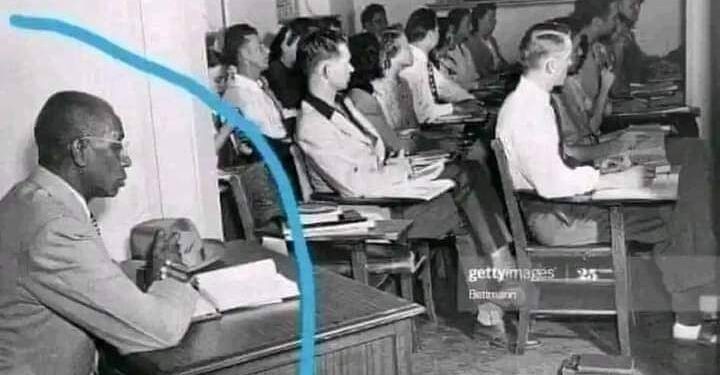
In 1948, the landscape of higher education in the United States underwent a significant transformation as George McLaurin became the first Black man to be admitted to the University of Oklahoma. However, this momentous milestone was marred by the discriminatory treatment he faced on campus.
Despite his academic excellence – McLaurin was one of the top three students in his college – he was forced to sit in a segregated corner, away from his white peers. “Some colleagues looked at me like I was an animal, no one spoke to me, for teachers I didn’t even exist, they rarely answered my questions,” McLaurin recounted.
Relegated to the margins of campus life, McLaurin refused to be invisible. “I dedicated so much to myself, that after my teammates started looking for me and teachers started taking me into consideration. I stopped being invisible to them,” he said.
McLaurin’s experience exemplifies the profound challenges faced by pioneering individuals who dared to break down the barriers of segregation and discrimination. In the face of such adversity, his unwavering dedication to his education shines through, serving as a testament to the power of knowledge and perseverance.
As McLaurin himself observed, “Education has more power than weapons.” His story stands as a powerful reminder that the pursuit of knowledge can be a transformative force, capable of shattering the shackles of injustice and paving the way for a more equitable future.
Today, McLaurin’s legacy lives on, inspiring generations of students to follow in his footsteps and continue the fight for equal access to education. His journey serves as a poignant reminder that the road to progress is often paved with the courage and determination of trailblazers who refuse to be silenced.











